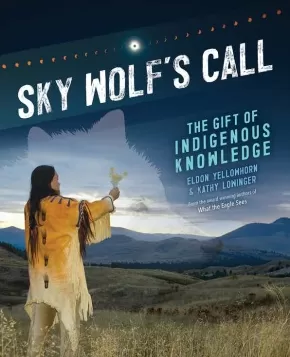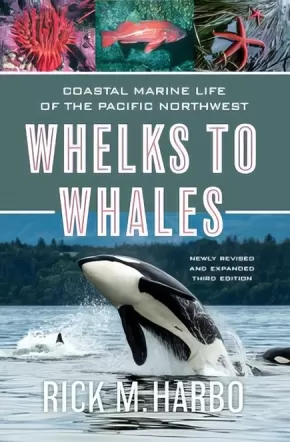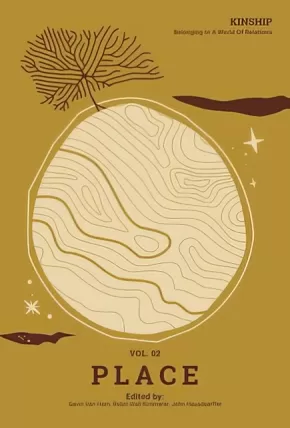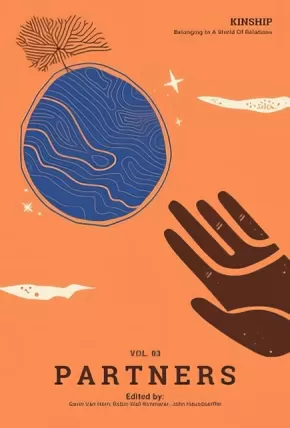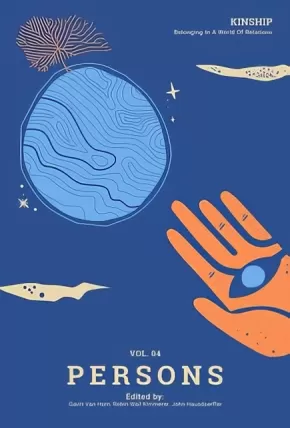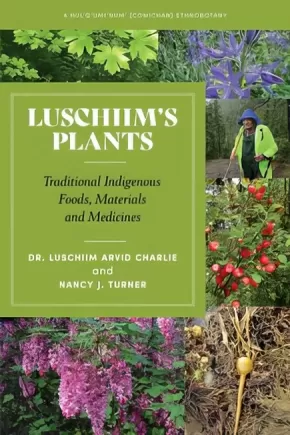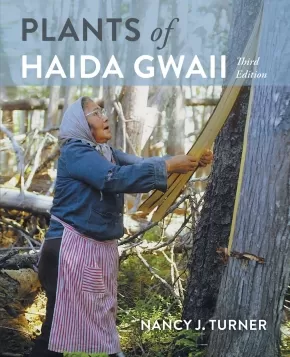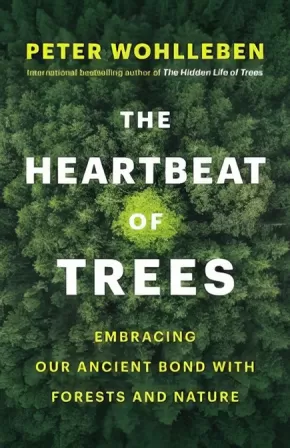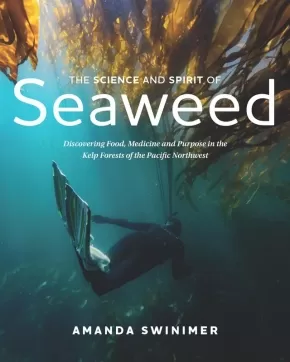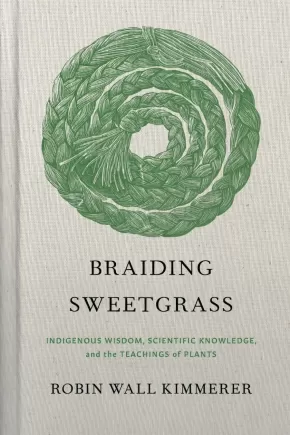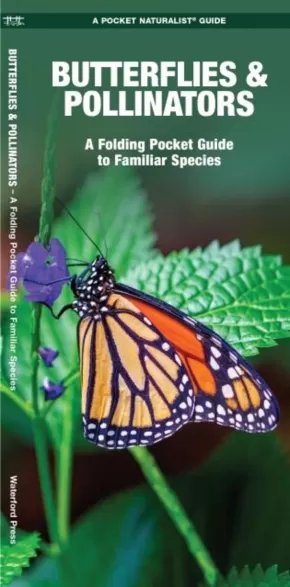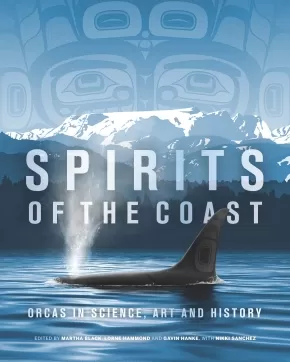Plants and Animals
Synopsis:
From healing to astronomy to our connection to the natural world, the lessons from Indigenous knowledge inform our learning and practices today.
How do knowledge systems get passed down over generations? Through the knowledge inherited from their Elders and ancestors, Indigenous Peoples throughout North America have observed, practiced, experimented, and interacted with plants, animals, the sky, and the waters over millennia. Knowledge keepers have shared their wisdom with younger people through oral history, stories, ceremonies, and records that took many forms.
In Sky Wolf’s Call, award-winning author team of Eldon Yellowhorn and Kathy Lowinger reveal how Indigenous knowledge comes from centuries of practices, experiences, and ideas gathered by people who have a long history with the natural world. Indigenous knowledge is explored through the use of fire and water, the acquisition of food, the study of astronomy, and healing practices.
Reviews
"An authoritative tribute to Indigenous knowledge systems that's a must-have for every library and classroom." - Kirkus Reviews
“Sky Wolf’s Call has an astoundingly broad scope introducing Indigenous Traditional Ecological Knowledge (TEK) in North America from time immemorial to the current day … This fast paced celebration of Indigenous innovation and technology is riveting.” - The British Columbia Review
Educator Information
Interest Age: 11+
Grade: 6+
Reading Age: 11+
A Junior Library Guild Gold Standard Selection
Table of Contents
Author’s Note
1: Sky Wolf’s Call: The Gift of Indigenous Knowledge: Foundational ideas behind Indigenous Knowledge and the importance of retaining, maintaining, and learning this sacred knowledge.
2: Water Knowledge Ways: Water links us all and is sacred. Indigenous people have fought to protect the gift of water from harm, and the critical role it has played in transportation, agriculture, irrigation, and food.
3: Fire and Smoke Knowledge: Fire and smoke are great gifts, including the burning of tobacco. In sacred ceremonies, smoke connects our breath with the heavens. Fire cooks our food, helps grow our crops, and even keeps our waters clean. Cultural burns are used to benefit the land.
4: Indigenous Knowledge and Food Security: Sharing, growing, and receiving food with family, community, and visitors is both an honour and a tradition. By understanding the traditional practices of salmon fishing, clam gardens, planting and harvesting certain crops, or hunting buffalo, Indigenous Peoples have respected what Mother Earth has to offer.
5: Healing Knowledge Ways: The use of the medicine wheel and the sweat lodge have been used over centuries and still help sick and troubled people. Games such as lacrosse and chunkey have helped in building individual strength and community spirit. And braiding together Indigenous healing and western science has opened new learning opportunities.
6: Sky Knowledge: From the earliest Indigenous astronomers to modern astrophysicists, these sky watchers have studied the sacred gifts of the sky: the sun, moon, planets, and stars that have produced maps, calendars, beliefs about how to govern, and even directions for building homes.
7: Keeping the Knowledge: Indigenous People hold oral narratives in high esteem because that was the way knowledge passed from one generation to the next. People in North America recorded important events with symbols, pictographs (paintings), and petroglyphs (carvings). Language Keepers and Knowledge keepers are making sure that Indigenous knowledge is never forgotten.
8: Sky Wolf’s Call: Indigenous knowledge is based on the idea that this world is a gift. Understanding the idea of connections (the skies with the earth, people with animals, the practical with the spiritual) is an important lesson with the challenges of climate change, pandemics, and wars. The wisdom of Indigenous Knowledge can help the whole world.
Thanks and Acknowledgments
Glossary
Selected Reading
Sources and Contacts
Additional Information
120 pages | 7.50" x 9.25" | Paperback
Synopsis:
Newly revised and updated with additional photographs and up-to-date names, this full-colour field guide to the marine life of coastal British Columbia, Alaska, Washington, Oregon and northern California is perfect for divers, boaters and beachcombers. It is a ready reference to more than 400 of the most common species: the fascinating local sponges, jellyfish, crabs, shrimp, barnacles, clams, snails, seals, fish, whales, sea algae and hundreds of other living things that can be observed and identified without being disturbed. The book is arranged for quick identification with colour-coded sections, full-colour photographs and comprehensive but concise information on size, range, habitat and facts of interest about each species. A glossary, checklist, reading list and full index are included.
This expanded third edition includes new material on identifying bivalves from their siphon shows, as well as current information on introduced and invasive marine species.
Additional Information
352 pages | 6.00" x 9.00" | Paperback | 3rd Edition
Synopsis:
We live in an astounding world of relations. We share these ties that bind with our fellow humans—and we share these relations with nonhuman beings as well. From the bacterium swimming in your belly to the trees exhaling the breath you breathe, this community of life is our kin—and, for many cultures around the world, being human is based upon this extended sense of kinship.
Kinship: Belonging in a World of Relations is a lively series that explores our deep interconnections with the living world. The five Kinship volumes—Planet, Place, Partners, Persons, Practice—offer essays, interviews, poetry, and stories of solidarity, highlighting the interdependence that exists between humans and nonhuman beings. More than 70 contributors—including Robin Wall Kimmerer, Richard Powers, David Abram, J. Drew Lanham, and Sharon Blackie—invite readers into cosmologies, narratives, and everyday interactions that embrace a more-than-human world as worthy of our response and responsibility.
Given the place-based circumstances of human evolution and culture, global consciousness may be too broad a scale of care. “Place,” Volume 2 of the Kinship series, addresses the bioregional, multispecies communities and landscapes within which we dwell. The essayists and poets in this volume take us around the world to a variety of distinctive places—from ethnobiologist Gary Paul Nabhan’s beloved and beleaguered sacred U.S.-Mexico borderlands, to Pacific islander and poet Craig Santos Perez’s ancestral shores, to writer Lisa María Madera’s “vibrant flow of kinship” in the equatorial Andes expressed in Pacha Mama’s constitutional rights in Ecuador. As Chippewa scholar-activist Melissa Nelson observes about kinning with place in her conversation with John Hausdoerffer: “Whether a desert mesa, a forested mountain, a windswept plain, or a crowded city—those places also participate in this serious play with raven cries, northern winds, car traffic, or coyote howls.” This volume reveals the ways in which playing in, tending to, and caring for place wraps us into a world of kinship.
Proceeds from sales of Kinship benefit the nonprofit, non-partisan Center for Humans and Nature, which partners with some of the brightest minds to explore human responsibilities to each other and the more-than-human world. The Center brings together philosophers, ecologists, artists, political scientists, anthropologists, poets and economists, among others, to think creatively about a resilient future for the whole community of life.
Contributors are both Indigenous and non-Indigenous.
Additional Information
204 pages | 5.27" x 7.75" | Paperback
Synopsis:
We live in an astounding world of relations. We share these ties that bind with our fellow humans—and we share these relations with nonhuman beings as well. From the bacterium swimming in your belly to the trees exhaling the breath you breathe, this community of life is our kin—and, for many cultures around the world, being human is based upon this extended sense of kinship.
Kinship: Belonging in a World of Relations is a lively series that explores our deep interconnections with the living world. The five Kinship volumes—Planet, Place, Partners, Persons, Practice—offer essays, interviews, poetry, and stories of solidarity, highlighting the interdependence that exists between humans and nonhuman beings. More than 70 contributors—including Robin Wall Kimmerer, Richard Powers, David Abram, J. Drew Lanham, and Sharon Blackie—invite readers into cosmologies, narratives, and everyday interactions that embrace a more-than-human world as worthy of our response and responsibility.
How do cultural traditions, narratives, and mythologies shape the ways we relate, or not, to other beings as kin? “Partners,” Volume 3 of the Kinship series, looks to the intimate relationships of respect and reverence we share with nonhuman species. The essayists and poets in this volume explore the stunning diversity of our relations to nonhuman persons—from biologist Merlin Sheldrake’s reflections on microscopic fungal networks, to writer Julian Hoffman’s moving stories about elephant emotions and communication, to Indigenous seed activist Rowen White’s deep care for plant relatives and ancestors. Our relationships to other creatures are not merely important; they make us possible. As poet Brenda Cárdenas, inspired by her cultural connections to the monarch butterfly, notes in this volume: “We are— / one life passing through the prism / of all others, gathering color and song.”
Proceeds from sales of Kinship benefit the nonprofit, non-partisan Center for Humans and Nature, which partners with some of the brightest minds to explore human responsibilities to each other and the more-than-human world. The Center brings together philosophers, ecologists, artists, political scientists, anthropologists, poets and economists, among others, to think creatively about a resilient future for the whole community of life.
Contributors are both Indigenous and non-Indigenous.
Additional Information
170 pages | 5.27" x 7.75" | Paperback
Synopsis:
We live in an astounding world of relations. We share these ties that bind with our fellow humans—and we share these relations with nonhuman beings as well. From the bacterium swimming in your belly to the trees exhaling the breath you breathe, this community of life is our kin—and, for many cultures around the world, being human is based upon this extended sense of kinship.
Kinship: Belonging in a World of Relations is a lively series that explores our deep interconnections with the living world. The five Kinship volumes—Planet, Place, Partners, Persons, Practice—offer essays, interviews, poetry, and stories of solidarity, highlighting the interdependence that exists between humans and nonhuman beings. More than 70 contributors—including Robin Wall Kimmerer, Richard Powers, David Abram, J. Drew Lanham, and Sharon Blackie—invite readers into cosmologies, narratives, and everyday interactions that embrace a more-than-human world as worthy of our response and responsibility.
Kinship spans the cosmos, but it is perhaps most life-changing when experienced directly and personally. “Persons,” Volume 4 of the Kinship series, attends to the personal—our unique experiences with particular creatures and landscapes. This includes nonhuman kin that become our allies, familiars, and teachers as we navigate a “world as full of persons, human and otherwise, all more-or-less close kin, all deserving respect,” as religious studies scholar Graham Harvey puts it. The essayists and poets in the volume share a wide variety of kinship-based experiences—from Australian ecophilosopher Freya Mathews’s perspective on climate-related devastation on her country’s koalas, to English professor and forest therapy guide Kimberly Ruffin’s reclamation of her “inner animal,” to German biologist and philosopher Andreas Weber’s absorption with and by lichen. Our kinships are interpersonal, and being “pried open with curiosity,” as poet and hip-hop emcee Manon Voice notes in this volume, “Stir the first of many magicks.”
Proceeds from sales of Kinship benefit the nonprofit, non-partisan Center for Humans and Nature, which partners with some of the brightest minds to explore human responsibilities to each other and the more-than-human world. The Center brings together philosophers, ecologists, artists, political scientists, anthropologists, poets and economists, among others, to think creatively about a resilient future for the whole community of life.
One of the editors of this work is Indigenous. And, throughout the series, various Indigenous contributions (stories, poems, etc.) can be found.
Additional Information
194 pages | 5.27" x 7.75" | Paperback
Synopsis:
In this unprecedented collection of botanical information, over 140 plants are categorized within their broad botanical groupings: algae and seaweeds, lichens, fungi and mushrooms, mosses and liverworts, ferns and fern-allies, coniferous trees, deciduous trees, shrubs and vines, and herbaceous flowering plants. Each entry is illustrated with a colour photo and includes the plant’s common, scientific and Hul′q′umi′num′ names; a short description; where to find it; and cultural knowledge related to the plant. Additional notes encompass plant use, safety and conservation; the linguistic writing system used for Hul′q′umi′num′ plant names; as well as miscellaneous notes from interviews with Luschiim.
This volume is an important addition to the bookshelves of botanists, and will fascinate anyone with an interest in plants of the West Coast and their traditional uses by Coast Salish peoples.
This resource is in English with additional notes that encompass the linguistic writing system used for Hul′q′umi′num′ plant names.
288 pages | 6.00" x 9.00"
Synopsis:
For many thousands of years the lands and waters of Haida Gwaii have been home to the Haida. Plants of Haida Gwaii, written with the cooperation and collaboration of Haida knowledge holders and botanical experts, is a detailed and insightful record of the traditional uses of over 150 species of native plants. Moreover, it explains the systems of knowledge and understanding that enabled the Haida to use the resources of their islands sustainably from one generation to the next over millennia.
The Haida names of these plants indicate their importance, as do the many narratives featuring them. From the ts’uu—massive western red-cedars—of the forests which provide wood used for canoes, house posts, poles and boxes, and bark carefully harvested for weaving mats, baskets and hats, to the ngaal—tough, resilient fronds of giant kelp—used to harvest herring eggs, the botanical species used by the Haida are found from the ocean to the mountain tops, and are as important today as ever before. With over 250 photographs and illustrations, this book is both beautiful and informative.
Additional Information
272 pages | 7.50" x 9.25"
Authenticity Note: As there are contributions from Haida knowledge holders, this work has been labelled as containing authentic Indigenous text. It is up to readers to determine if this work is authentic for their purposes.
Synopsis:
A powerful return to the forest, where trees have heartbeats and roots are like brains that extend underground. Where the color green calms us, and the forest sharpens our senses.
In The Heartbeat of Trees, renowned forester Peter Wohlleben draws on new scientific discoveries to show how humans are deeply connected to the natural world.In an era of cell phone addiction, climate change, and urban life, many of us fear we’ve lost our connection to nature—but Peter Wohlleben is convinced that age-old ties linking humans to the forest remain alive and intact.
Drawing on science and cutting-edge research, The Heartbeat of Trees reveals the profound interactions humans can have with nature, exploring:
- the language of the forest
- the consciousness of plants
- and the eroding boundary between flora and fauna.
A perfect book to take with you into the woods, The Heartbeat of Trees shares how to see, feel, smell, hear, and even taste the forest.
Peter Wohlleben, renowned for his ability to write about trees in an engaging and moving way, reveals a wondrous cosmos where humans are a part of nature, and where conservation and environmental activism is not just about saving trees—it’s about saving ourselves, too.
Reviews
“As human beings, we’re desperate to feel that we’re not alone in the universe. And yet we are surrounded by an ongoing conversation that we can sense if, as Peter Wohlleben so movingly prescribes, we listen to the heartbeat of all life.” —Richard Louv, author of Our Wild Calling and Last Child in the Woods
“Astonishment after astonishment—that is the great gift of The Heartbeat of Trees. It is both a celebration of the wonders of trees, and a howl of outrage at how recklessly we profane them.” —Kathleen Dean Moore, author of Earth’s Wild Music
“As Peter Wohlleben reminds us in The Heartbeat of Trees, trees are the vocabulary of nature as forests are the brainbank of a living planet. This was the codex of the ancient world, and it must be the fine focus of our future.” —Dr. Diana Beresford-Kroeger, author of To Speak for the Trees and The Global Forest
Additional Information
264 pages | 5.50" x 8.50" | Hardcover
Synopsis:
Sustainable Pacific Northwest-based seaweed harvester Amanda Swinimer describes the ecology, culinary uses, evidence-based health benefits and climate change-resisting potential of seaweed and shares highlights from her remarkable life beneath the waves.
Related to the most ancient living organisms on earth, seaweeds are incredible and unique life forms, sharing qualities with both plants and animals, as well as fungi. They have been prized as a nutrient-dense food source for millennia and contain essential vitamins, minerals and fatty acids, protein and fibre as well as biologically active compounds not found anywhere else in nature. Seaweeds are also a source for innovations combating climate change due in part to their ability to absorb massive quantities of carbon dioxide.
Based in the Pacific Northwest, home to the greatest cold-water seaweed diversity in the world, Amanda Swinimer has made her living from the sustainable harvest of seaweeds for over two decades. In The Science and Spirit of Seaweed, Swinimer reflects on the journey that led to her successful seaweed harvesting business and provides identification information, ecologically sound harvesting techniques, traditional medicinal application and evidence-based health information for more than twenty varieties of seaweeds commonly found from California to Alaska. She also includes notes on culinary and skin-care uses for several types of seaweeds.
Complemented by vibrant underwater photography, beautiful illustrations and chef-inspired recipes, this volume richly conveys the benefits and wonder of living in harmony with the ocean. It will be a welcome resource to beachcombers, foragers and anyone fascinated by the marvels of the natural world.
Reviews
"This beautiful book will appeal to poets and photographers as surely as it will to scientists, dreamers, harvesters and beachwalkers–every page opening a little window to the soul of the sea and all that dwells within. A timely salute to the synergy between man, ocean, plant, animal, place, spirit and science." — Prannie Rhatigan, author of Irish Seaweed Kitchen, July 2021
"This tour through Amanda Swinimer’s Mermaid Garden ebbs and flows through seaweed fact and the author’s fantasies and reminiscences, punctuated by Chris Adair’s surreal photos of Amanda suspended mid-water. Red, green and brown seaweeds are described with culinary, health and spa anecdotes. Thirty pages are dedicated to "Seaweed & Health," where the promise of seaweed in the treatment and prevention of diseases, many associated with aging, is explored (this section is neatly referenced). Fitting to Amanda’s sprinkling of ecological concern throughout the book, is the section on "Algae: A Global Perspective." Here we glimpse the role of seaweeds in moderating our abused environment and being the prime producer energizing the coastal ecosystem. The recipes are a pleasure. They are original. Many are provided by featured chefs. Swinimer has created a delightful, readable, informative and richly illustrated resource on seaweeds that I highly recommend." — Louis Druehl, author of Pacific Seaweeds: A Guide to Common Seaweeds of the West Coast, July 2021
"This beautifully written book is an irresistible and unique fusion of practical field guide, personal memoir and warm wisdom of how to live well in a home place. A wonderful ramble through the world of seaweeds from basic identification and natural science to culinary uses and medicine, Amanda’s creation brings us into her sphere by melding science, love and reverence in an inspiring ode to these humble but magnificent species." — Fiona Hamersley Chambers, ethnobotanist and owner of Metchosin Farm, July 2021
Additional Information
256 pages | 8.00" x 10.00" | 300 photos | Paperback
Synopsis:
Crabs can be found in abundance along the shorelines from Oregon to BC, burrowed under sand, soil and rocks. Keep this portable field guide handy on trips to the seashore to identify over forty species of crabs and hermit crabs in all shapes and sizes. Discover the differences between the Butterfly Crab and the Puget Sound King Crab and learn how to distinguish between male and female crabs. With full-colour photographs featuring both dorsal and ventral views, and accompanied by descriptive text for easy identification, A Field Guide to Crabs of the Pacific Northwest is an ideal companion for curious beachgoers of all ages.
Additional Information
2 pages | 37.00" x 9.00"
Synopsis:
From dinosaur bones to petrified wood and from primordial seashells to archaic oddballs, this handy field guide makes identification of fossils a cinch. Learn how to identify a fossil and discover the most up-to-date tips on where and when to hunt for them. Featuring gorgeous full-coloured photos and paired with short and informative descriptions, this field guide is suitable for fossil enthusiasts of all ages and skill levels. Lightweight and pocket-sized for convenience, A Field Guide to Fossils is easy to grab and toss into any fossil lover’s backpack on their next adventure.
Additional Information
2 pages | 37.00" x 9.00" | 65 colour photographs | Pamphlet
Synopsis:
Updated with a new introduction from Robin Wall Kimmerer, the special edition of Braiding Sweetgrass celebrates the book as an object of meaning that will last the ages. Beautifully bound with a new cover featuring an engraving by Tony Drehfal, this edition includes a bookmark ribbon, a deckled edge, and five brilliantly colored illustrations by artist Nate Christopherson. In increasingly dark times, we honor the experience that more than 350,000 readers in North America have cherished about the book—gentle, simple, tactile, beautiful, even sacred—and offer an edition that will inspire readers to gift it again and again, spreading the word about scientific knowledge, indigenous wisdom, and the teachings of plants.
As a botanist, Robin Wall Kimmerer has been trained to ask questions of nature with the tools of science. As a member of the Citizen Potawatomi Nation, she embraces the notion that plants and animals are our oldest teachers. In Braiding Sweetgrass, Kimmerer brings these two lenses of knowledge together to take us on “a journey that is every bit as mythic as it is scientific, as sacred as it is historical, as clever as it is wise” (Elizabeth Gilbert).
Drawing on her life as an indigenous scientist, and as a woman, Kimmerer shows how other living beings—asters and goldenrod, strawberries and squash, salamanders, algae, and sweetgrass—offer us gifts and lessons, even if we've forgotten how to hear their voices. In reflections that range from the creation of Turtle Island to the forces that threaten its flourishing today, she circles toward a central argument: that the awakening of ecological consciousness requires the acknowledgment and celebration of our reciprocal relationship with the rest of the living world. For only when we can hear the languages of other beings will we be capable of understanding the generosity of the earth, and learn to give our own gifts in return.
Educator Information
Includes an updated introduction from the author.
Additional Information
456 pages | 5.50" x 8.50" | Hardcover
Synopsis:
Some of the most vibrant colors and patterns in the Animal Kingdom are found among butterflies. Gawdy swallowtails, exquisite gossamer-wings, and a multitude of eye-catching brushfoots are particular standouts, though plenty of whites, sulphurs, metalmarks, and skippers are also adorned with splendid markings. Flowering plants across North America attract some 700 butterfly species as well as thousands of moths, bees, wasps, flies, and beetles, not to mention some hummingbirds and bats. This portable reference is a handy tool for those wishing to deepen their understanding of butterflies and other colorful pollinators. It features beautiful illustrations of 70 familiar butterflies and moths as well as some especially common larvae and pupae. Also included are notes on life cycles and other common pollinators. Laminated for durability, this lightweight, 12-panel folding pocket guide is a terrific resource for educators, learners, naturalists, and gardeners.
Additional Information
12 pages | 4.10" x 8.35"
Synopsis:
The recipes and traditions found in this book reflect the culture and the knowledge of the Medicine Wheel, featuring 26 edible and medicinal plants that you can gather in nature as Carrie and her grandmother did.
Create a luxurious and natural beauty regime by crafting your own lotions, soaps and teas from all-natural ingredients. From stress-busting teas and bath bombs to skin-smoothing lotions and creams, get vibrant skin and a healthy glow with Carrie’s creations based on her grandmother’s traditional teachings.
"I remember gathering plants and berries with my grandmother while she shared her stories and her deep understanding of traditional plants and their uses. My grandmother healed us with her medicinal plants—everything from pink eye, sore throats, stomach ailments, aches and pains, and infections. She’d make us these beautiful, healing teas." –Carrie
Additional Information
144 pages | 6.00" x 7.75"
Synopsis:
An insightful collection exploring the plight, past and promise of the orca, powerful symbol of BC’s wild coast and apex predator of all oceans. Spirits of the Coast brings together the work of marine biologists, Indigenous knowledge keepers, poets, artists and storytellers, united by their enchantment with the orca. Long feared in Western cultures as “killer whales,” and respected and honoured by Indigenous cultures as friends, family or benefactors, orcas are complex social beings with culture and language of their own. With contributors ranging from Briony Penn to David Suzuki, Gary Geddes and Michael Nicoll Yahgulanaas, this collection brings together diverse voices, young and old, to explore the magic, myths, and ecology of orcas. A literary and visual journey through past and possibility, Spirits of the Coast illustrates how these enigmatic animals have shaped us as much as our actions have impacted them, and provokes the reader to imagine the shape of our shared future.
Educator Information
Includes Indigenous and non-Indigenous contributions.
Recommended in the Canadian Indigenous Books for Schools 2020/2021 resource list for grades 9 to 12 for English Language Arts, Law, Social Studies, Social Justice, Science.
Additional Information
192 pages | 8.00" x 10.00"

